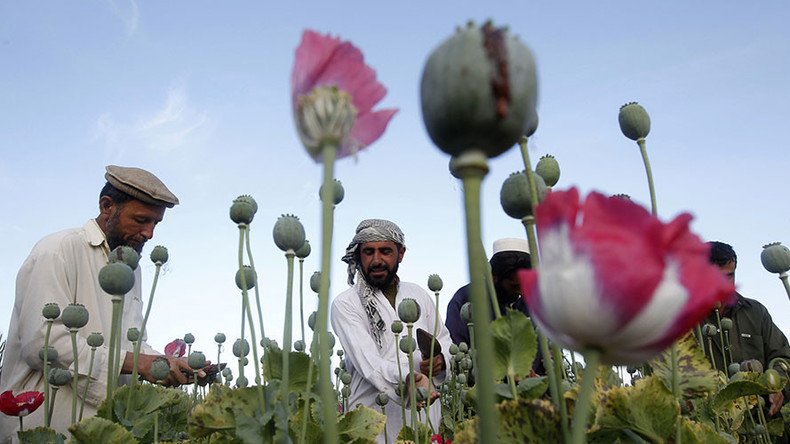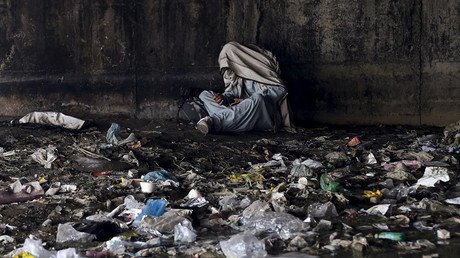'It’s US baby, and I’m not proud of it - Afghanistan is world’s biggest drug dealer'

American counternarcotics policy in Afghanistan has been senseless, as growing opium poppies remains the only source of income that keeps rural areas alive. Meanwhile millions of US dollars pumped into the country end up in the pockets of warlords experts say.
A top US watchdog is urging the Trump administration to investigate potential links between the record production of opium in Afghanistan and America's heroin crisis.
A new report from the Special Inspector General for Afghanistan Reconstruction (SIGAR), reveals that despite the “US providing $8.6 billion for counternarcotics efforts in Afghanistan since 2002, the area under cultivation continues to rise."
“It increased 10 percent to 201,000 hectares in 2016 compared to the previous year’s total,” the report explains.
According to Brian Becker of the ANSWER Coalition, there are “numerous factors that have led to an increase in opium production and thus heroin.”
“When you look at the years 2004, 2005, 2006, 2007 in Afghanistan – there was more opium poppy produced there than in any single period during the rule of the Taliban staring in the mid-1990’s,” he told RT.
Among the reasons that have led to it, he describes the country being splintered, domination by warlords and insurgent groups’ desire to raise money. Becker also alleges the Afghan government was probably “profiting from the production of opium.” Additionally, there’s the problem of poverty, he added.
“[There are] many, many poor farmers after the US invasion and the NATO invasion in 2001; the Afghan economy collapsed. So what are farmers to do? They are going to grow crops – cash crops – opium in other words,” he said.
The solution to the problem lies within economic measures rather than military means, the analyst said.
“By the way, every US bank – I am not joking – has been convicted of laundering billions of dollars of drug money. None of those bank executives go to jail – they just get fined. In other words profit drives this industry. There is no military solution,” Becker added.
As to the opioid epidemic in the United States, in Becker’s view the overuse of prescription painkillers is to blame, not Afghanistan.
“They are addicted to opiates, because of over-prescription by the US pharmaceuticals and doctors, who are pumping opiates into poor communities. Then when people can’t afford opiates they go to heroin, which is cheaper in the US than the prescription drug medications. That is the reason we have this huge spike in opium or heroin related deaths in the US,” Becker said.
‘US should stop turning a blind eye to drug trade’
Author and journalist Eric Margolis says the whole US policy of spending millions of dollars to counter opium production in Afghanistan is senseless.
“The money allegedly being spent to curb opium is really going into the pockets of the major warlords in the country, who prop up the government in Kabul – this is their pay off – it is not really anti-drug measures. Certainly, if the US really wanted to end drugs going out to the US, it could take much more effective action than it is doing now. But drugs and heroin underpin the Afghan economy. There is no other economy and the whole rural sector in Afghanistan keeps itself alive by growing opium poppies,” he told RT.
PFC Hansen Kirkpatrick of Wasilla, Alaska is the seventh US soldier killed in Afghanistan this year https://t.co/0aMoBLEvQI
— RT America (@RT_America) July 5, 2017
To prevent opium flowing into the US, “they have to develop some kind of economy in Afghanistan,” Margolis said.
“They have to destroy poppy fields, but provide the farmers with some other alternative income for that, and stop turning a blind eye to this terrible drug trade. Afghanistan is now the world’s biggest drug dealer. Unfortunately speaking, as an American, it is our baby, and I am not proud of it,” he added.
The statements, views and opinions expressed in this column are solely those of the author and do not necessarily represent those of RT.













